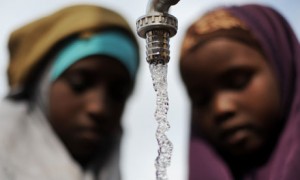 I live in Amarillo, at least when I’m not on the road. It may be hard for you to believe but Amarillo hasn’t had any significant rain since November of last year. Can you imagine what that has been like? It is unbelievable what effect this has had on crops, livestock, and the economy. The city lives in danger because of the ability of fires to start at any time bringing devastation to our houses. The only good thing–at least I don’t have to mow my yard.
I live in Amarillo, at least when I’m not on the road. It may be hard for you to believe but Amarillo hasn’t had any significant rain since November of last year. Can you imagine what that has been like? It is unbelievable what effect this has had on crops, livestock, and the economy. The city lives in danger because of the ability of fires to start at any time bringing devastation to our houses. The only good thing–at least I don’t have to mow my yard.
Realizing the impact that the lack of rain has had where I live, I was absolutely stunned when I heard someone in Somalia say that it hadn’t rained where he lived in years. If you can somehow imagine what that would do to a land and people, you understand the problem.
Drought is not only happening to this extent in Somalia but also in Ethiopia and Kenya. Problems have been compounded in Somalia because of the inability of many relief organizations (especially Christian groups) to be able to help there because of their government. Thousands are now leaving Somalia trying to find relief. And the government has persecuted the people leaving rather than helping them.
There are now close to a half million Somali people who are in a refugee camp at Dadaab. This makes it the largest refugee camp in the world. Christian Relief Fund is helping. Can you help us help them? We are bringing in food and water to Dadaab to help the Somali refugees. We are getting resources into Somalia through individuals rather than our perceived agency. We are helping bring food and drilling water wells for the distressed in Kenya. My friend, Francis Bii, is directing this for us. Pray for him and pray for all the people who need help. It is a life and death struggle for these drought victims.
I was in a place of drought in Kenya the other day. The first words of Emmanuel who was taking care of around 300 orphans was “We were dead. . .” He meant that if we hadn’t brought them food, they wouldn’t be alive. I was so happy to see that they had food to eat. The children were singing joyfully and were ever so thankful for their beans and rice. Then I started looking around for water. I asked if they had any. Then they pointed to some trees that looked about five miles away. He explained that if he needed water, they could walk to this place and bring some back carrying it in a can on their heads. But it would be so little water. And it would take so long. And it was polluted to begin with. And the children already had typhoid from drinking it.
Then I went to another place. The caretaker there told me that his daily water journey took 15 miles. Personally, I can’t even imagine living where I live (no matter how bad the drought is here) and having to walk 15 miles to carry a little bit of dirty and polluted water every time I needed a drink. But that is how people are living in the Horn of Africa.
If you want to help, visit christianrelieffund.org and make a contribution. Hey, thanks for caring. I know these people seem like foreigners on the other side of the world. But some of them are my friends. And knowing the people who read this blog, I know that you would like them too.


Thank you for keeping us informed